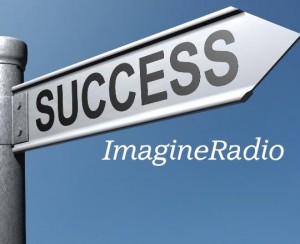We are getting close to “that” time of year again. You know, the end of the year and your New Year’s Resolutions. Even though some of your past attempts were so unsuccessful you have even decided to stop making resolutions, this current podcast episode will show you how behavioral economics can help you become more successful this time around.
Why behavioral economics when most of us decide on an educational approach, like attending a class or lecture telling you why doing something is better for you? Well the very fact that a lot of people fail in following through on a resolution is proof in itself that education while making you feel you know more, does not move you to make changes.
Behavioral economics seeks to unite the basic principles of economics with the realities of human psychology. To put it simply: when faced with the option of getting off the couch or exercising, the couch wins despite the fact you know not being active undermines your health. Humans need a compelling reason to take action and economic benefit is an effective means. But not just any type of economic incentive.
Research reveals that many of our decisions don’t reflect rational choices, but rather irrational thinking that occurs in predictable ways. Think about all the information we have on how seat belts save lives but some people still don’t wear them. To counter this, one insurance company has offered a device you voluntarily install that monitors seat belt behavior in exchange for lower insurance rates. For their efforts they report a decrease in the number of people who do not wear seat belts.
Another way of explaining it is Let’s say your company decides to form weight loss groups and then holds a lottery every two weeks to pick a group. Any selected group reaching 80% of their weight goals receives a $50 gift card for each group member. This approach solves a number of problems as members of each group will work to help and encourage other members who may have less motivation. The randomness of the selection process means that any group can be selected so no one group has a lock on winning. This works on the same principle that people who work in pairs report better outcomes than someone working individually only with an economic incentive that encourages results.
On an individual basis, if you want your husband to work in exercise time with you, ask that he pick a time every other day for an activity and put it on his calendar as a regular appointment. Each time he keeps the appointment he earns money toward you buying that expensive gaming console or big screen TV he wants. Treating the time for activity as a regular appointment means he does not have to alter his mindset for the day as this becomes part of the usual routine and seeing the money pile up provides incentive to keep repeating the behavior.
that he pick a time every other day for an activity and put it on his calendar as a regular appointment. Each time he keeps the appointment he earns money toward you buying that expensive gaming console or big screen TV he wants. Treating the time for activity as a regular appointment means he does not have to alter his mindset for the day as this becomes part of the usual routine and seeing the money pile up provides incentive to keep repeating the behavior.
The same goes for adding money to an account and deducting money for every missed appointment. Loss aversion becomes a powerful tool in supporting behavioral change. Some websites like Stickk.com have a program that allows you to set up a goal and receive cash for your progress. Use is free for individual users. When you submit a report to the website a referee will confirm the accuracy of the report and your dollar amount will go up or down based on your performance.
listen to the podcast to get a complete picture of how you can include behavioral economics into your goals for the New Year. I’m not saying they’re perfect but using them gives you a fighting chance at meeting your target and maybe making a little cash along the way.
If you like the show, be sure to subscribe on iTunes and Stitcher. If you really like it, be sure to write a review. It helps the show.


